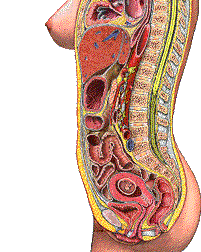Tired Pregnant Women
Women often feel tired throughout their pregnancies, with extreme fatigue occurring during the third trimester in 60% of pregnant women. Women can also suffer from depression during the third trimester that may persist once baby is born. Interventions designed to increase sleep duration and decrease depressive symptoms have the potential to prevent, ameliorate, or reduce fatigue in pregnant women.
Women that have accumulated a sleep debt may continue to suffer from sleep deprivation and possible depression.
 Napping is something many pregnant women do. Planned naps could help third trimester pregnant women, if sleep disordered breathing has been ruled out. Women who work during the last trimester of pregnancy reported reduced nighttime sleep and higher fatigue. Women with sleep problems and with depressive symptoms, are in a situation that effects both their health and their babies health. Depressed mothers may not breastfeed their children, and in severe cases may harm themselves. Earlier bedtimes can also lead to more nighttime sleep for third trimester working pregnant women.
Napping is something many pregnant women do. Planned naps could help third trimester pregnant women, if sleep disordered breathing has been ruled out. Women who work during the last trimester of pregnancy reported reduced nighttime sleep and higher fatigue. Women with sleep problems and with depressive symptoms, are in a situation that effects both their health and their babies health. Depressed mothers may not breastfeed their children, and in severe cases may harm themselves. Earlier bedtimes can also lead to more nighttime sleep for third trimester working pregnant women.
Is it the lack of sleep that causes depressive symptoms, or vice-versa?
What we see is that if pregnant women are experiencing depressive symptoms, they may also be suffering from sleep deprivation. There is a connection between poor sleep and depression in postpartum women. Other risk factors, like family history, play a part. In the study, “Sleep and Depression in Postpartum Women: A Population-Based Study,” 21 % of the depressed postpartum women reported having also been depressed during pregnancy, and 46% of them reported at least one previous depressive episode prior to conception. Tiredness can be easily assessed in postpartum women, and may be due to depression. Ensuring sleep may not necessarily prevent depression but can help postpartum women who may be more susceptible to developing depression.
A support system can help pregnant women get some sleep and curb the effects of constant fatigue and depression.
Postpartum sleep disturbances are a normal experience. Mothers do experience impaired neurobehavioral performance due to the lack of sleep. This sleep disturbance is temporary. Your infant will eventually be able to sleep through the night. Women that have accumulated a sleep debt starting in their third trimester of pregnancy may continue to suffer during postpartum from sleep deprivation and possible depression.
Postpartum sleep disturbances are a normal experience.
Having a support system in place can help many women. This can help pregnant women get some sleep and curb the effects of constant fatigue and depression. We can ask pregnant women about their sleep in order to possibly rule out other factors such as depression. Speak to your physician, sleep studies can be performed at home and quick results ensure starting treatment sooner.
We here at Clinique Somnomed are creating a few articles focusing on women’s health for our friends at FWD Co.

One Comment Add yours